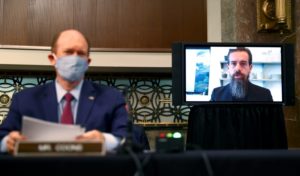
Supreme Court hears oral arguments in “Remain in Mexico” challenge, federal court blocks lifting of COVID-19 deportation policy, and more . . .
IN THE NEWS
- The U.S. Supreme Court heard arguments in a case challenging the Biden Administration’s attempt to end the Trump-era “Remain in Mexico” immigration policy. The policy requires asylum seekers to stay in Mexico pending their immigration hearings if they cannot be detained in the United States. Texas and Missouri sued the Administration, arguing that ending the policy would violate federal immigration law, which requires the government to detain asylum seekers, return them to Mexico or Canada, or allow them into the United States on a case-by-case basis. A lawyer for the federal government argued that the U.S. Department of Homeland Security legally exercised its discretion to make policy judgments when it decided that the costs of the Remain in Mexico program outweighed the benefits.
- Another Biden Administration attempt to end a second Trump-era immigration policy faced legal challenges this week. A federal court temporarily blocked the Biden Administration from lifting Title 42—a public health policy that permits federal officials to deport migrants before they have a chance to claim asylum, purportedly to curb the spread of COVID-19. The Centers for Disease Control and Prevention (CDC) announced plans to end the policy on May 23, 2022 because the agency considers it “no longer necessary.” But 21 Republican-led states asked the court to keep the policy in place, arguing that the Administration violated the Administrative Procedure Act when it revoked the policy without a notice-and-comment period—even though the CDC did not use notice-and-comment rulemaking to implement the policy. The court did not indicate how long the temporary order will last.
- The Consumer Financial Protection Bureau (CFPB) announced that it will begin examining non-bank financial companies that it believes pose a risk to consumers, based on its authority under the Dodd-Frank Wall Street Reform and Consumer Protection Act. Although the CFPB has previously used this authority to examine companies falling into categories such as student loan servicers and payday lenders, the agency now plans to look at entities not previously examined, including FinTech firms. The CFPB claims these examinations will allow the agency “to be agile and supervise entities that may be fast-growing or are in markets outside the existing nonbank supervision program.”
- European Union countries agreed to legislation that will require digital platforms to take greater action to remove illegal content and disinformation from their platforms. The new European Digital Services Act contains a number of provisions applying to tech companies, including banning certain types of targeted advertising, creating an appeals process for illegal content removal, and requiring large platforms such as Facebook to disclose the algorithms they use to recommend content to users. The law will, “ensure that platforms are held accountable for the risks their services can pose to society and citizens” according to European Commissioner for Content Margrethe Vestager.
- The U.S. Department of Veterans Affairs issued an interim final rule that added nine “rare respiratory cancers” to its regulations discussing presumed disabilities. The updated regulations allow courts to presume a veteran who suffers from any of the listed conditions acquired the condition through their service, which then qualifies them for disability compensation. Secretary of Veterans Affairs Denis Richard McDonough noted that the updated regulations will allow suffering veterans to “finally get the world-class care and benefits they deserve, without having to prove causality between their service and their condition.” President Joseph R. Biden praised the Department for supporting veterans but urged Congress to pass bipartisan legislation addressing veterans’ exposure to toxic chemicals.
- The U.S. Food and Drug Administration (FDA) announced it will propose a rule that would ban the sale of menthol-flavored cigarettes. According to FDA, menthol is a minty flavor additive that increases the appeal and addictiveness of cigarettes. FDA also plans to prohibit all flavors other than tobacco in cigars to reduce their appeal to minors and young adults. The agency claims these proposed rules could “significantly reduce disease and death” related to tobacco product use—“the leading cause of preventable death” in the United States. U.S. Department of Health and Human Services Secretary Xavier Becerra stated that the proposed rules will also “advance health equity,” as menthol cigarettes are disproportionately used by racial and ethnic minority groups.
- FDA issued draft guidance outlining new recommended limits of lead in apple juice and other juices. The guidance calls on producers to achieve a lead level of 10 parts per billion for apple juice and 20 parts per billion for other juice blends, down from the agency’s previous limit of 50 parts per billion for juice. This guidance is in line with FDA’s Closer to Zero action plan—a “science-based approach to reducing exposure to toxic elements in food.”
WHAT WE’RE READING THIS WEEK
- In an article for the Brennan Center for Justice, Douglas Keith, Alicia Bannon, and Amanda Powers urge the U.S. Supreme Court to adopt a judicial code of conduct. Pointing to the erosion of public trust in the courts and recent news of a potential conflict of interest for Justice Clarence Thomas, Keith, Bannon, and Powers argue that the Court should change its current practice of letting justices decide whether or not to recuse themselves. They propose that a code of conduct could act as ethical “guardrails” for the Court, detailing when a justice’s recusal would be appropriate, limiting justices’ interactions with politicians, and requiring justices to explain why they chose not to recuse themselves in certain cases.
- In a Center for American Progress report, Lindsay Mahowald, research assistant at the Center, finds that anti-discrimination laws protecting LGBTQ+ individuals both increase the wellbeing of LGBTQ+ individuals and benefit the economy. In states with anti-discrimination laws, LGBTQ+ individuals experienced a wide range of benefits including improvements to their physical and mental health, more supportive school and work environments, and less housing discrimination. Furthermore, Mahowald asserts, research shows that anti-discrimination laws can benefit entire communities because they spur innovation and bolster nationwide economic growth. To ensure these benefits are realized, Mahowald urges Congress to pass the Equality Act, which would expand the Civil Rights Act of 1964 to protect against discrimination on the basis of sexual orientation and gender identity.
- In an article in the SMU Science & Technology Law Review, Nicholson Price, law professor at Michigan Law, argues that artificial intelligence (AI) used in the medical field, such as systems that can predict patient risk for disease or detect cancer, should be subject to a system of “distributed, localized governance” to protect patients and ensure the technologies’ benefits are captured. He notes that certain medical AI systems can be deeply flawed and can harm patients when they do a poor job predicting risk. Furthermore, these systems may be less effective when used in a poorly resourced health care facility. Due to this variance in the effectiveness of medical AI, Price argues that centralized oversight by a federal agency, such as FDA, may produce lackluster results. Instead, he proposes solutions such as funding low-resource institutions to oversee the effectiveness of their own medical AI consistently and building technological infrastructure to monitor these systems successfully.
EDITOR’S CHOICE
- In an essay in The Regulatory Review, Kyle C. Velte, professor at the University of Kansas School of Law, argued that a mandatory continuing legal education requirement for attorneys that focuses on diversity, equity, and inclusion helps prevent anti-LGBTQ+ bias in the legal profession. Velte discussed that, historically, many U.S. laws and regulations have been “tools of exclusion, violence, and cruelty” towards LGBTQ+ individuals and that despite progress, many people still harbor anti-LGBTQ+ sentiments. Velte concluded that if the American Bar Association and states implemented this mandatory training for lawyers, both LGBTQ+ individuals and those with other marginalized identities would benefit, given the similarities between anti-LGBTQ+ discrimination and other forms of discrimination.



